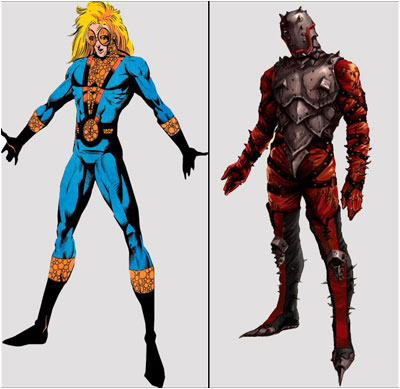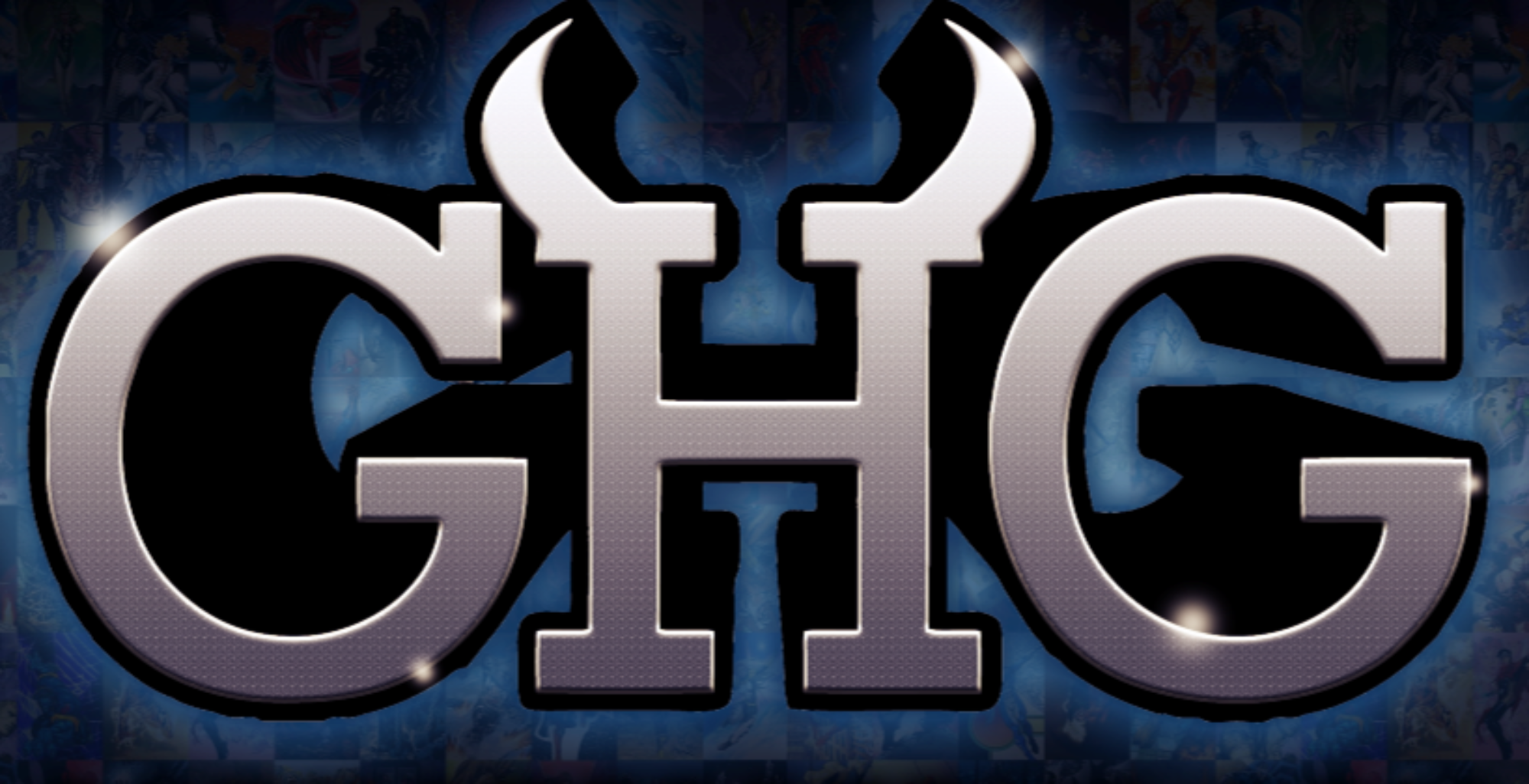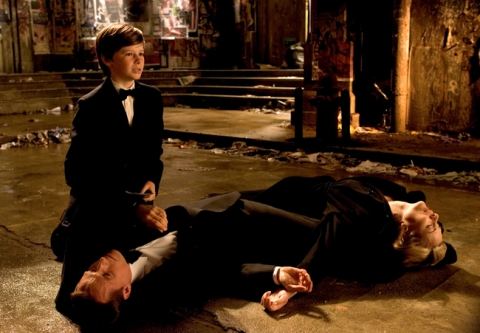*This was originally an overview of the second season of True Detective, but wound up becoming much more than that, as you will see…*
Tone. It is one of the most difficult aspects of a story to master, yet plays so heavily into the enjoyment for the audience. Two weeks ago saw the airing of the season two finale of True Detective, which found itself mired in a dour and listless setting, and which prompted my immediate seeking out for a bar as soon as I was able to catch the finale. It was with hope that I’d gotten through the season, hoping that there would be some levity — anything — to lighten the mood even slightly and make the season enjoyable. But, as with most properties being reinvented and reintroduced to modern audiences (or, in this case, continuing the thematic structure in a new setting), True Detective imploded in its morass, like a dour black hole of depression.
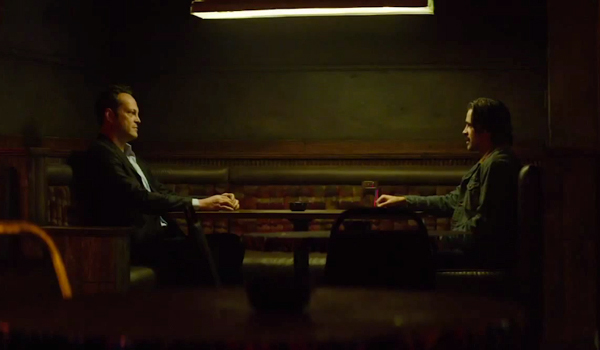
Yes, the first season of True Detective was nothing if not challenging to watch. But within the mystery, psycho-sexual dynamics, occult/weird fiction elements, and elemental dread were two central characters who had vastly different philosophies towards life. The show had slick, consistent direction, moments of tense action, solid performances, great cinematography, and respected its audience enough to warrant philosophical discussions. The first season is the epitome of what episodic storytelling can be, much like what Breaking Bad had been.
The second season, however, doubled down on the dour, mirthless tone, which not only made the show less interesting, but also made it a chore to even get through. In my previous review of the season two premiere, a case was made for the introduction of a character like Woody Harrison’s Marty: someone who could listen and discuss the philosophical ideas Matthew McConaughey’s Rust spouted, and either present them in a layman’s way, or brush them aside with a “The fuck’re you talkin’ about?” Season two? Every single character spoke exactly the same, with the same pace and import, and with a total lack of even remotely enjoying their lives. (In the opening of the sixth episode, Vince Vaughn’s character asks Colin Farrell’s character how he likes his coffee. The exchange went as such: VAUGHN “How do you take it?” [SILENCE FOR TWO BEATS] “Cream? [SILENCE ONE BEAT] Sugar?” FARRELL [SILENCE FOR THREE BEATS]: “I take it black.” Slowing down the dialogue does NOT mean it is more important.)
At what point has “grim and gritty” come to mean “good”? This is a point of contention within the geek world, as we want our properties and characters to be taken seriously. But being taken seriously does not necessarily equate to being dark and brooding…
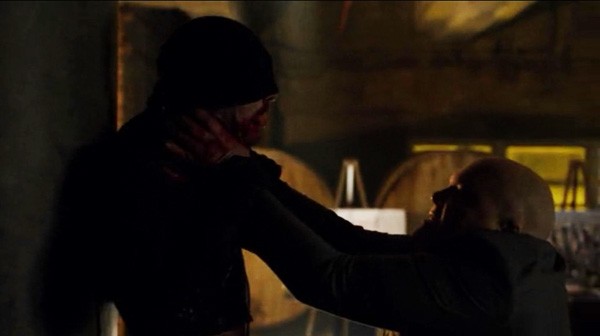
I’d gotten into some contentious discussions earlier this year by suggesting that Netflix’s Daredevil series (which is excellent, and which I love, facts you should remember) suffers from a jarring tonal shift in regards to the rest of the Marvel Cinematic Universe. This is the same universe in which gods, giant green rage monsters, aliens, and trillion-dollar-iron-suits are common. This is a universe in which a talking raccoon and sentient tree had a shoot out in the floating head of a Celestial.
This is the same universe in which Agents Of S.H.I.E.L.D. exists (which now also includes the Inhumans). The tone is so dark and—let’s face it, violent—that it would be jarring for someone like, say, Thor (or Sif, since she already cameoed on Agents Of S.H.I.E.L.D.), to show up and give Daredevil a hand. It is hard to believe those worlds coexist since the tone is so diametrically opposite, and whenever there is a reference or line talking about the Avengers, it sounds awkward, like it is trying to fit in.
Compare that to this summer’s Ant-Man. With Paul Rudd as the titular diminutive hero, it was easy to expect a lighter tone and lots of fun. And the film delivered in spades on that level, but on another level it made the stakes high without resorting to end-of-the-world shenanigans that made Age Of Ultron fun but, ultimately, rote. The entire climax revolves around Scott Lang’s relationship to his daughter, and those stakes are high because they’re something to which we can all relate (if not to our kids, at least in our relationships to people about whom we care). Despite the light tone, we care about the stakes (comparatively low as they are), and the characters take themselves seriously enough to be, at the least, interesting (except for Corey Stoll’s Darren Cross…but that’s a discussion for another time).
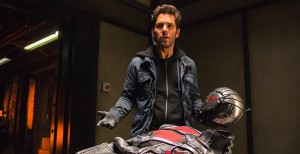
On the flip-side of this superhero coin, look at the recent Fantastic Four (or, if you’re like most of the world’s population, don’t take a look at it). Once the defining, establishing characters in Marvel’s entire universe, the Fantastic Four’s recent film threw them into a drab, washed-out-color-palated mess; brooding, flat, and with the sort of body-horror conventions that would be better suited for David Cronenberg than a superhero film. Yes, that was director Josh Trank’s original intent: superpowers that were less blessing and more of a handicap, and how a person would adapt (or not) to that jarring change.
What makes that film a mess is (amongst many, many other things) a jarring finale that seems tacked on by suddenly turning the film into the superhero adventure it avoided being, tired one-liners, end-of-the-world crap, and all. It is as if in the last twenty minutes the film finally embraced the genre it was distancing itself from being. Either it should have been entirely a superhero-type film, or been entirely an introspective piece while introducing those tropes slowly (much like Trank’s previous Chronicle. If Fox hired him on the basis of that film, they messed up by cornering him to embrace genre tropes he had no interest in exploring). It’s not to say committing entirely to a style would have saved the film, but it would not have been so jarring.
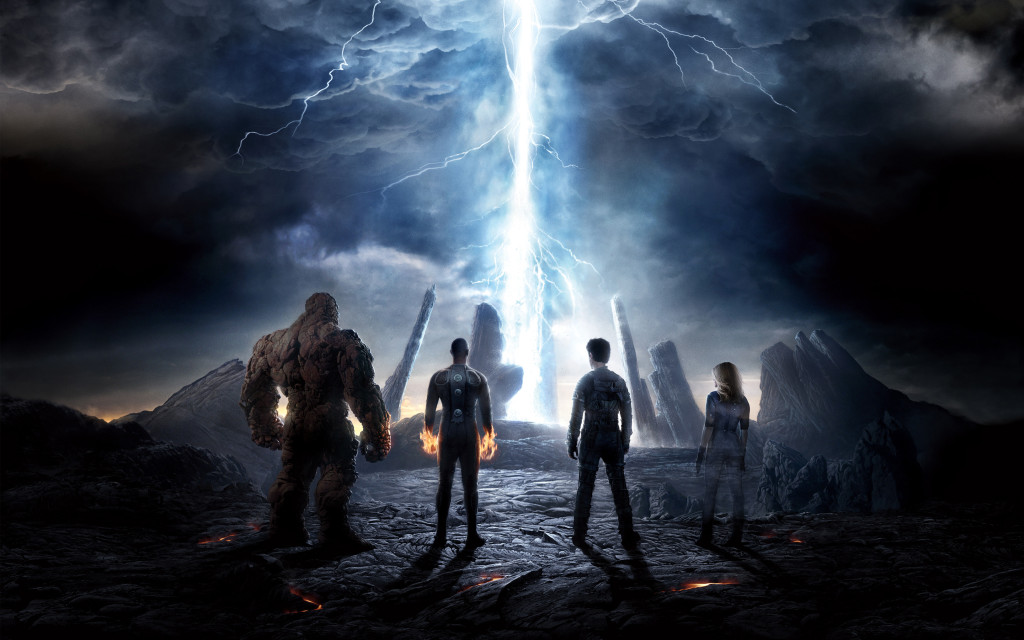
Again, why is it jarring? It is because the tone changes dramatically. Look, this is the new paradigm. I get it. Zack Snyder’s DC universe has washed-out, drab colors and an ultra-serious take on superheroes (save for Suicide Squad, which looks like the sort of bonkers fun comic book films should be), and he and Christopher Nolan set a precedent that has yet to be broken. Nolan’s tone for the Batman series worked for that character, but his success there does not mean that tone would work for other characters (especially Superman).
Superman’s darkest moments should still be brighter than any other hero). It seems that The Flash on the CW has a better handle for tone: we care about Grant Gustin’s Barry Allen, and his friends, and, as a result, that raises the stakes throughout, even if it is just the equivalent of a monster-of-the-week series. We don’t need a massive body count, or the threatening of the world, of the razing of a city for stakes to be high. Sometimes it’s as simple taking the blame for the misdeeds of a comrade because it is hard, but the right thing to do (The Dark Knight), or making it home to sit down with your daughter for dinner (Ant-Man). Who knew good writing and relatable characters could make us take a concept seriously without making everything so grim and dark? Who knew it could be that simple?
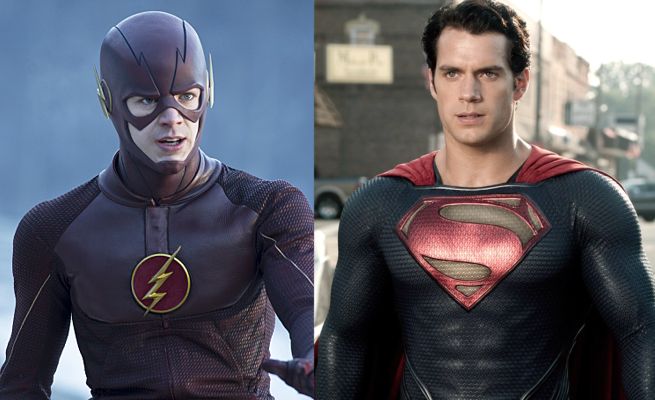
Let’s get back to the fun. Let’s finally get a Star Trek movie that isn’t dripping in grime and grit, but that projects an optimism for the future (just as it was intended to do!) Let’s get a final Die Hard where John McClane is back to being a scared, injured cop waaaay out of his league, reluctant to kill, and winging it throughout; where he basically begs God not to let him die before taking a literal leap of faith over the side of a building…just so he can see his estranged wife again. Let’s get a James Bond film that doesn’t give a crap about Bond’s past (I’m a massive Bond fan, and as good and refreshing as Daniel Craig’s run is, they’re not the standalone adventures of the previous iterations. His Bond is lacking in the charm and self-aware fun of every other Bond. Just watch Quantum Of Solace again to see how boring Bond can be when the sense of fun is gone).
Let’s get a Batman/Superman movie where the trailer isn’t bombarding you with its over-dramatic music and muted color scheme, almost daring you get excited for it; you’re selling us a movie about a flying alien fighting a grown man wearing a bat costume and an impervious woman fighting with a sword and shield. It is already ridiculous and silly. We’re already sold on it. So long as the plot makes sense and we care about the characters, we’ll go with it. Let’s have some fun.
This all hearkens back to the entire point: grim and dark does not mean serious. Fantastic Four, Quantum Of Solace, and season two of True Detective seem to illustrate that point. When audiences say, “The grittier, the better!” (a comment I’d had said directly to me in reference to Daredevil’s tone), it is hard to not just shake my head and say…well, no.
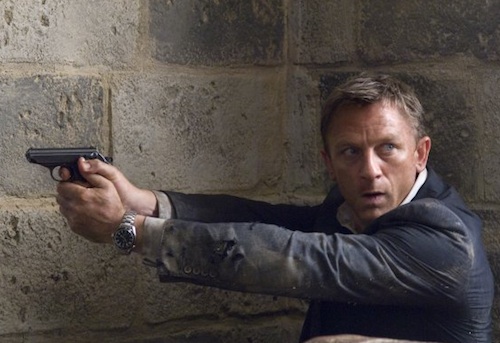
That’s not always true.
Tone is so important to a story, to how we enjoy it and consume it and discuss it, but it is something that is so often missed. Fun isn’t a bad thing, and levity does not take away from the importance of a story. There is no cinematic equivalent of Marvel’s MAX or Knights line, or DC’s defunct Vertigo line, where darker and more mature content was the norm. Either it fits tonally, or it’ll be shoehorned in with dialogue that winds up sounding awkward. Can this trend ever be broken? The success of recent releases (Ant-Man, Guardians Of The Galaxy, the popularity of The Flash, and the fact that Suicide Squad exists at all) show that perhaps audiences are ready to have fun again. The fact that the Spectre trailer has Bond back with the gadgets is an exciting development, and the possibility of George Miller directing the Man Of Steel follow-up is exciting as well (Miller is the more accomplished director, and also understands why a story needs a dark tone…if that is indeed what it needs to be to work).
We have what we want. Our characters and properties are serious and in the public discussion nearly every day. These are the heroes that we use to define what we consider good, admirable qualities, and the ideals that we purport to admire. It says a lot when we want them constantly conflicted, brooding, depressed bags of neurosis…perhaps it says more than we are hoping to admit.
Just because something is “dark and gritty” does not make it better. I mean, just look at what Marvel did to Speedball during the Civil War.
